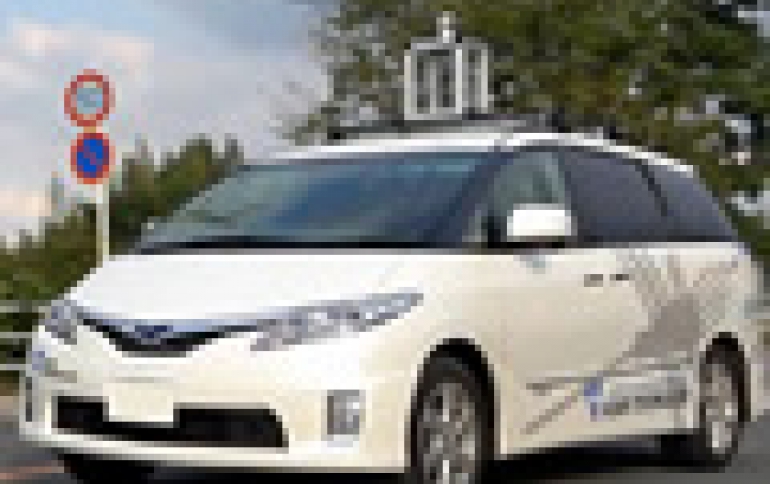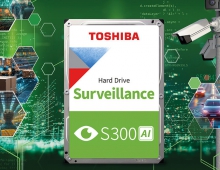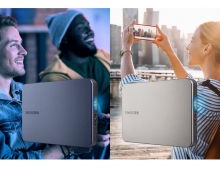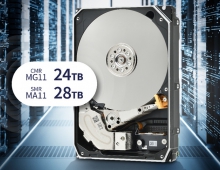
Toshiba Starts Testing System For Future Self-driving Cars
Toshiba is joining the market of autonomous vehicles by developing an an obstacle avoidance system it hopes to commercialize by 2020 for marketing to autoparts makers. Taking advantage of the company's image recognition chips, the system is in road-testing phase and will be relatively cheap. Toshiba hopes to establish a new revenue stream with little added investment by taking advantage of its existing semiconductor and microcontroller technologies.
Developed with Nagoya University, the new system combines a monocular camera and a laser sensor with the Visconti 4, the latest generation of Toshiba's Visconti image recognition processors for the automotive market.
The Visconti 4 can work even in the dark to recognize objects and ascertain such factors as distance and height.
The Visconti chip processes the image data captured by the camera to three-dimensionally measure the orientation and distance of stationary objects. The chip combines this with information from the laser sensor for added precision, then creates a map depicting where the object is and how to get around it.
Toshiba is now testing this system on public roads in Aichi Prefecture with 3-D mapping software company Aisan Technology and Tier IV.
Toshiba's goal is to offer car makers and autoparts makers interested in self-driving cars a low-power, low-cost system that can withstand vibrations and temperature swings and run for at least a decade.
In addition to system chips, Toshiba also makes lithium-ion batteries and microcontrollers for controlling vehicles' electric motors.
Besides Toshiba, Hitachi group company Hitachi Automotive Systems has also road-tested a system it hopes to have ready by 2025 for autonomous driving in all but emergency situations. Pioneer has developed a small laser sensor it will test-market starting in 2017.





















